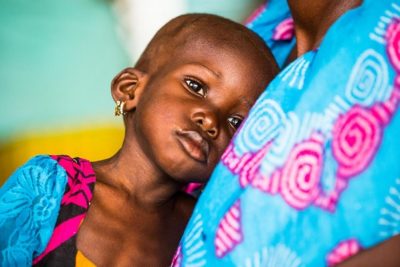Dr. Magdalene Odunvbun, a consultant paediatric haemato-oncologist at the University of Benin Teaching Hospital, has emphasized the importance of early detection and treatment of cancer in children.
In an interview, she highlighted that timely medical intervention can significantly increase the chances of curing childhood cancers.
“Our greatest challenge in cancer management in children is that by the time they come for treatment, they come very late.
The disease has spread to other parts of the body and the percentage of care has become very low; what should have had a 90 percent rate of cure becomes five percent of cure,” Odunvbun explained.
She urged parents not to wait until abnormal growths become very large before seeking medical care and cautioned against using native treatments for tumors.
“By the time they present to the hospital, they have exhausted all their money without a cure,” she said.
Dr. Odunvbun clarified that children, like adults, can develop cancers, which are caused by the uncontrolled multiplication of body cells. Common sites for cancer in children include the eyes, kidneys, blood, and lymph nodes.
She outlined early signs of cancer in children:
- Eye cancer: A speck in the eye that resembles a cataract or a tumor growing in the retina.
- Body growths: Any abnormal growth in parts of the body, such as the neck or stomach.
- Blood cancer: Repeated shortage of blood, frequent blood transfusions, or persistent fever.
Dr. Odunvbun called for financial support for cancer treatment in children, lamenting the lack of government assistance. “Parents do not receive government support for treatment. Often, they abandon the treatment because they cannot afford it, even when the child is close to being cured,” she noted.
She highlighted the disparity in cancer cure rates between developed countries and Nigeria, attributing it to better financial support and health insurance coverage in developed countries.
“In developed countries, the government covers the cost of treating children through health insurance, ensuring timely treatment and better compliance,” she added.
Dr. Odunvbun’s appeal underscores the critical need for early detection, appropriate medical care, and financial support to improve cancer treatment outcomes for children in Nigeria.




